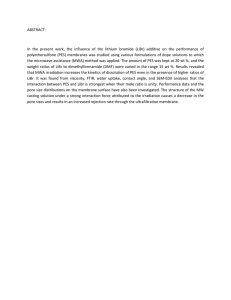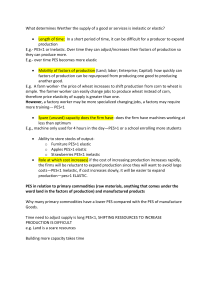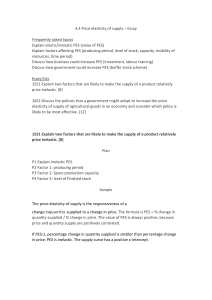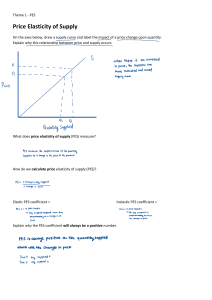to view the PEOs and POs of M.Tech. in Power and Energy System
advertisement
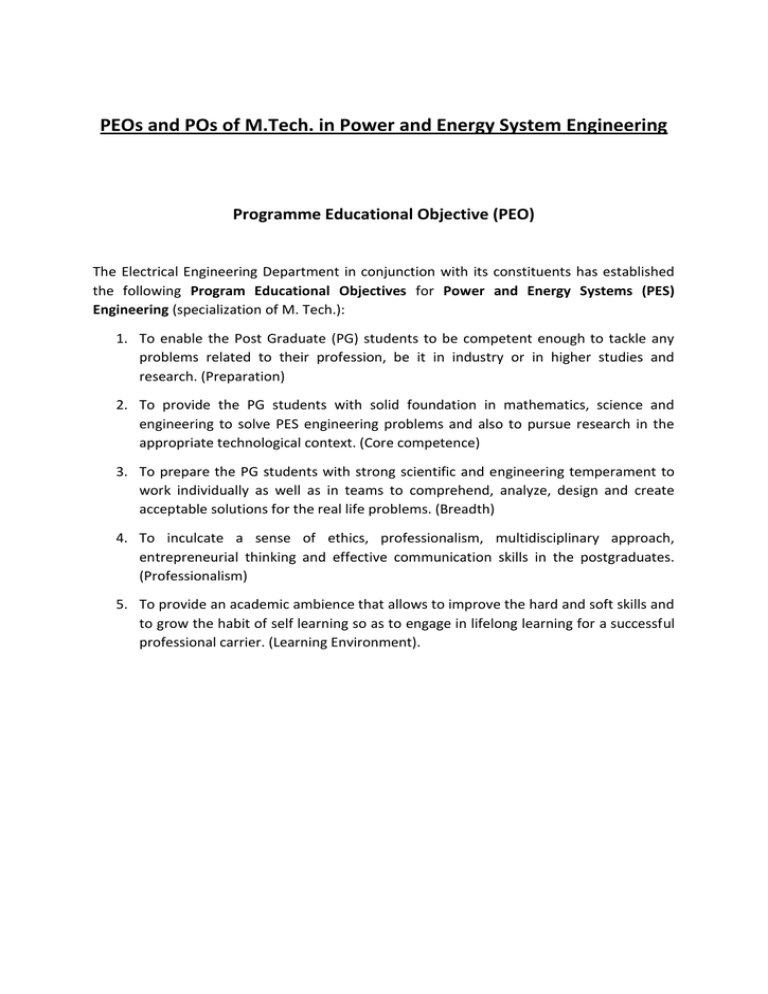
PEOs and POs of M.Tech. in Power and Energy System Engineering Programme Educational Objective (PEO) The Electrical Engineering Department in conjunction with its constituents has established the following Program Educational Objectives for Power and Energy Systems (PES) Engineering (specialization of M. Tech.): 1. To enable the Post Graduate (PG) students to be competent enough to tackle any problems related to their profession, be it in industry or in higher studies and research. (Preparation) 2. To provide the PG students with solid foundation in mathematics, science and engineering to solve PES engineering problems and also to pursue research in the appropriate technological context. (Core competence) 3. To prepare the PG students with strong scientific and engineering temperament to work individually as well as in teams to comprehend, analyze, design and create acceptable solutions for the real life problems. (Breadth) 4. To inculcate a sense of ethics, professionalism, multidisciplinary approach, entrepreneurial thinking and effective communication skills in the postgraduates. (Professionalism) 5. To provide an academic ambience that allows to improve the hard and soft skills and to grow the habit of self learning so as to engage in lifelong learning for a successful professional carrier. (Learning Environment). Programme Outcome (PO) M. Tech. program in Power and Energy System Engineering under Department of Electrical Engineering at National Institute of Technology Silchar has been designed to generate the following skills and abilities amongst the successful students, as stated under (1) through (11) below: 1. The ability to apply knowledge of mathematics, science, and engineering in solving real life engineering problems. 2. The ability to design a component, system or process related to Power and Energy Systems (PES) for a defined objective and conduct experiments, as well as to analyze and interpret the data. 3. An ability to design a component, system or process related to PES to meet desired needs within realistic constraints such as safety, environmental, economic, social, ethical, manufacturability and sustainability. 4. The ability to function on multidisciplinary tasks and with multidisciplinary teams. 5. The ability to perform literature survey to identify, formulate and solve power engineering problems using modern engineering tools (softwares and hardwares). 6. The ability to demonstrate the knowledge of professional and ethical responsibilities. 7. The ability to communicate effectively in both oral and written forms. 8. The ability to analyze the impact of engineering solutions in global, economic, environmental and social perspectives. 9. The ability to develop confidence for self study and to engage in lifelong learning. 10. The urge to participate / do the needful to update knowledge on contemporary PES related issues. 11. Graduates will be good citizens with sense of responsibility. ***********************




